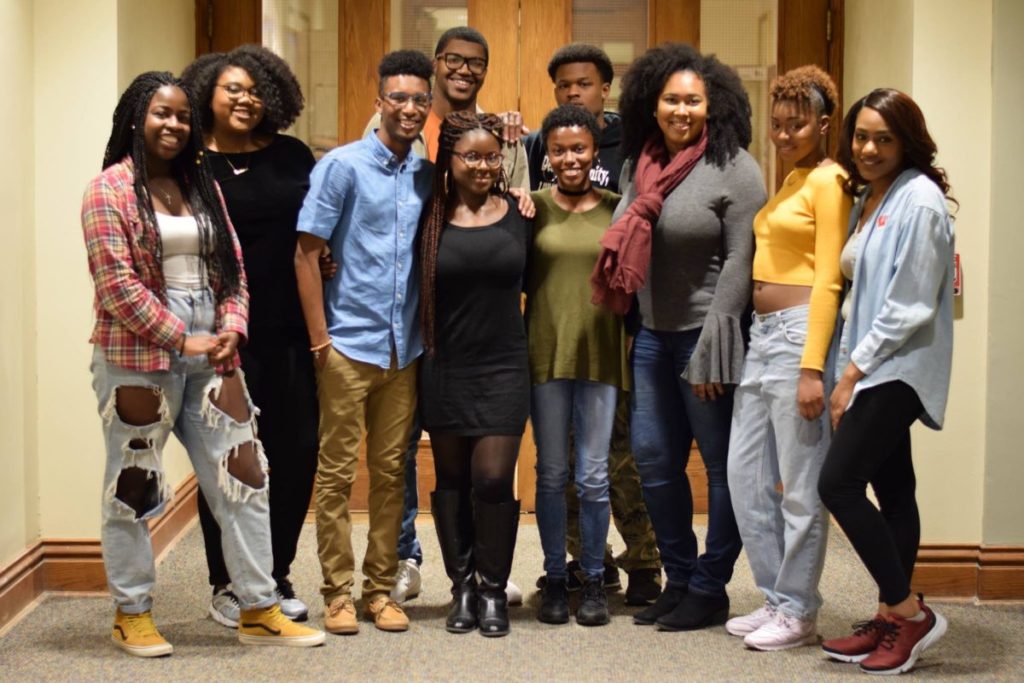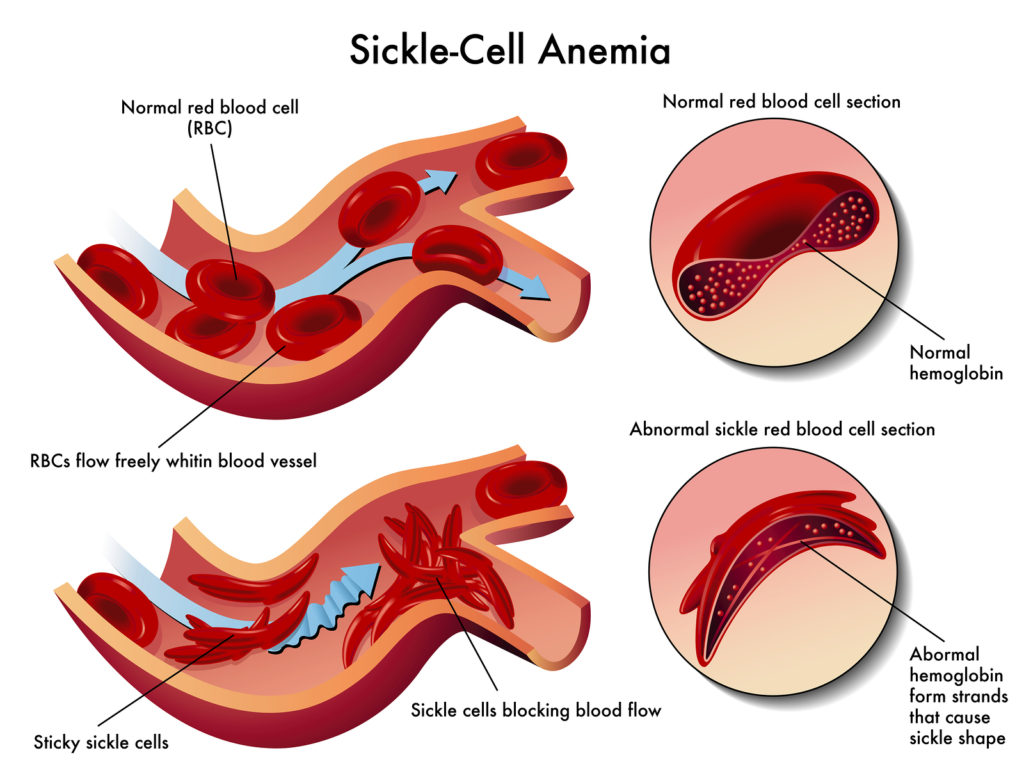BY MIAH GATZKE

Led by members of the UW-Madison Black Student Union, students and community members are coming together in the fight against sickle cell disease.
Sickle Cell Blood Drives have existed in Madison for over five years, but the effort was recently reignited when the Wisconsin Black Student Union (WBSU) committed to being the campus leader in the cause. With service being a core value of their organization, getting involved in the effort made sense.
“We’re excited to be a driving force in making sure that the blood drives are happening and that they’re in the places they need to be,” said Tashiana Lipscomb, President of WBSU.
The Sickle Cell Awareness Blood Drives started when community members brought the issue to staff at the Morgridge Center for Public Service. Many years later, committed campus and community partners work together to raise awareness about the disease and increase the diversity of blood donors.
“The Sickle Cell Awareness Blood Drives have been developed and incubated at the Morgridge Center for a number of years. We are thrilled that the program will now live with the Wisconsin Black Student Union and can’t wait to see the drives thrive under their leadership,” said Lisa Chambers, Morgridge Center for Public Service Associate Director.
The Sickle Cell Awareness Blood Drives will integrate into the existing programming of WBSU, which aims to support African-American and Black students’ social, academic, and political goals. The initiative reflects their new focus of connecting students with communities beyond campus borders.
Blood from people of similar race and ethnicity is important in ensuring the best transfusion results, with the least potential reaction.
Personally, Lipscomb sees the blood drives as an opportunity for WBSU to lend support and raise much-needed awareness.
“It’s easy for people to forget how close to home things are,” said Lipscomb. “I think there are some health related issues that people automatically feel empathy for and know a lot about. Sickle cell disease is one of those causes that can be forgotten.”
But forgetting about the issue can be detrimental to those it affects. Many sickle cell patients require frequent blood transfusions to maintain basic levels of health and their body is more likely to accept blood from a donor of the same race and ethnicity. Although sickle cell disease affects nearly 100,000 Americans, a disproportionate number of African American and Black people are affected by the disease.
In the United States, an estimated 100,000 people of various racial and ethnic backgrounds have SCD, with more than 90% of African descent.
While the need is great, everyone can help. Show your support for individuals with sickle cell disease by donating blood, volunteering at a blood drive, or spreading the word.
Start today by registering to donate at the next Sickle Cell Awareness Blood Drive.
Join The Fight Against Sickle Cell Disease
About Sickle Cell Disease
-

medical illustration of the effects of sickle cell anemia Sickle cell disease (SCD) is a common, inherited red blood disorder. Throughout their lives, SCD patients can suffer a range of disabilities, including acute anemia, tissue and organ damage, terrible pain and even strokes. Red blood cells carry oxygen to all parts of the body through a substance called hemoglobin. Normal red blood cells are soft, round, and can squeeze through tiny blood vessels.
- People with SCD have red blood cells that contain mostly hemoglobin S, an abnormal hemoglobin type. These red blood cells are stiff, distorted in shape (like a sickle) and sometimes block small blood vessels. This is what causes the complications of SCD and why blood transfusions from people with healthy red blood cells can help.
- You can’t catch SCD, but for patients born with it, there is currently no widely used cure.
How Blood Donations Help People with Sickle Cell Disease
- Depending upon the patient and severity of symptoms, SCD may be treated in a variety of ways. The Red Cross supports one
of the most critical sickle cell treatments of all – blood transfusions. - Donors who have the necessary blood antigens to treat SCD are so important to these patients. Blood transfusions can lessen pain for the children and adults who live with SCD. Some SCD patients require transfusions as often as monthly – making the need for blood donations constant.
- Do I have what it takes to help people with SCD?
- How do I make a blood donation?
- How much time will it take to donate?
Sickle Cell Donor Program
Sickle Cell Disease is an inherited blood disorder that causes anemia, lung and tissue damage, strokes and terrible pain. It is estimated that over 70,000 Americans have Sickle Cell Disease. 90% of all Sickle Cell Disease patients in the United States occur in people of African descent.
Although there is no cure, Sickle Cell Disease can be managed through blood transfusions. Children with Sickle Cell Disease often receive blood transfusions on an ongoing basis, making it more important for them to receive the best match for their bodies.
To ensure that your blood donation goes to help a Sickle Cell patient, please identify yourself as African American or Black and allow our blood collection staff to place a blue tag on your blood donation. The blue tag will notify our processing lab that this blood donation is designated for the Sickle Cell Donor Program.
If your blood is not a match for the Sickle Cell Donor Program, it is stored until it is needed. If the blood approaches its expiration date and has not been needed by a Sickle Cell patient, it will be used by another patient in need. The American Red Cross strives to ensure every blood donation helps a patient in need.
Want to learn more?
Sickle Cell Disease Information
